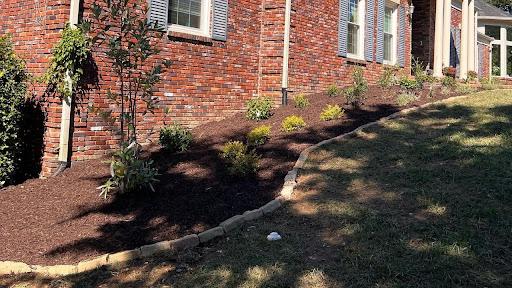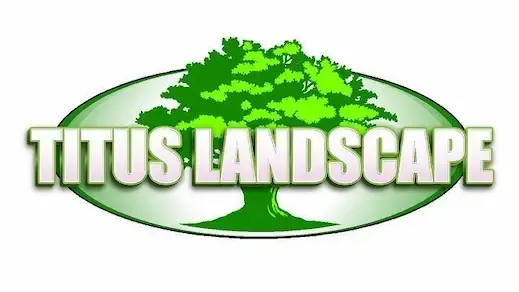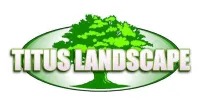Blogs

What Is A Berm In Landscaping?
A berm in landscaping is a raised area of soil designed to enhance the visual appeal, improve drainage, provide privacy, or act as a barrier to noise and wind. A berm is essentially a raised mound of soil used in landscaping to achieve both functional and aesthetic goals. It’s not just a pile of dirt; it’s a thoughtfully designed element that can enhance the look and performance of your outdoor space. Berms can range from small, subtle mounds to more substantial features, depending on your needs and preferences.
At Titus Landscape, we specialize in designing and installing berms that perfectly suit your landscape goals. Whether you want to create privacy, improve drainage, or simply add visual interest, our team is dedicated to bringing your vision to life. With our expertise, we can transform your yard into a beautiful and functional space.
Key Takeaways
Definition: A berm is a raised area of soil used to enhance both function and aesthetics in landscaping.
Dimensions: Berms are usually 4-6 times longer than they are wide and can be up to 18-24 inches high.
Uses:
Aesthetic Appeal: Adds height and visual interest to flat landscapes.
Privacy: Blocks unwanted views and creates secluded areas.
Drainage: Helps prevent water pooling and improves soil drainage.
Raised Beds: Provides well-draining soil for certain plants.
Camouflage: Hides unattractive features and fills empty spaces.
Construction: Berms are created by mounding soil and can be edged with stones or retaining walls. Planting a variety of plants on the berm enhances its appearance and function.
Top Landscaping Tips
Benefits of Raised Garden Beds
Raised garden beds offer a controlled environment for growing plants, elevating them above ground level to improve drainage and reduce weed competition. These beds also enhance soil quality and accessibility, making gardening more efficient. They can be crafted from various materials for both function and aesthetics.
Improved Soil Drainage: Elevates soil to prevent waterlogging.
Reduced Weed Competition: Easier to control weeds.
Better Soil Quality Management: Allows for customized soil mixtures.
Increased Accessibility: Easier on the back and knees.
Enhanced Aesthetics: Can be built from wood, stone, or brick.
How to Improve Drainage in Your Yard
Proper drainage is essential for a thriving landscape. Without it, water pooling can harm plants and lead to pest issues. Enhancing drainage involves installing features that redirect excess water and improve soil absorption, thus maintaining a healthy and beautiful yard.
French Drains: Redirects surface and groundwater away from problem areas.
Swales: Shallow ditches that guide water flow.
Perforated Pipes: Helps with subsurface water management.
Organic Matter: Improves soil’s water absorption capabilities.
Soil Amendments: Adjust soil composition to enhance drainage.
Creative Ways to Use Landscaping Rocks
Landscaping rocks are versatile and can significantly enhance your outdoor space. From defining areas and creating paths to forming decorative features, rocks can add both structure and beauty. Their use also aids in erosion control and weed suppression, making them a practical choice for various designs.
Paths and Borders: Creates defined walkways and edges.
Rock Gardens: Adds visual interest with minimal maintenance.
Large Boulders: Serves as focal points or seating areas.
Smaller Rocks: Ideal for ground cover or garden bed definition.
Erosion Control: Helps stabilize soil and prevent runoff.
Designing a Functional Outdoor Living Space
Designing a functional outdoor living space goes beyond furniture placement. It involves creating areas that complement your lifestyle, incorporating elements like patios, decks, and outdoor kitchens. Thoughtful integration of features can make your outdoor area both practical and inviting.
Patios and Decks: Provides areas for relaxation and entertainment.
Outdoor Kitchens: Enhances cooking and dining experiences.
Fire Pits: Creates a cozy focal point for gatherings.
Lighting: Adds ambiance and extends usability.
Landscaping Features: Incorporates elements like berms and plants for added functionality.
Tips for Effective Erosion Control
Erosion control is crucial for preserving the integrity of your landscape. Effective techniques prevent soil loss and stabilize your yard, helping to maintain its beauty and functionality. Implementing proper control measures can safeguard your outdoor space from the damaging effects of erosion.
Ground Covers: Plants that help stabilize soil and prevent erosion.
Erosion Control Blankets: Protects soil and promotes vegetation growth.
Terraces: Creates level areas on sloped terrain to reduce runoff.
Berms and Retaining Walls: Provides structural support and minimizes erosion.
Regular Maintenance: Ensures ongoing effectiveness of control measures.
Frequently Asked Questions About Landscaping
1. What is a berm around a house?
A berm around a house is a raised mound of soil designed to improve drainage, block views, or add visual interest to the landscape.
2. What are berms also known as?
Berms are also known as earth mounds or raised earth features.
3. What is the difference between a berm and an embankment?
A berm is typically smaller and more decorative, while an embankment is larger and often used for structural support or flood protection.
4. What are the different types of berms?
Types of berms include decorative berms, functional berms (for drainage), and privacy berms.
5. What is the best material for a berm?
The best material for a berm is high-quality soil mixed with compost, but it can also be enhanced with stones or gravel for added stability and aesthetics.
Enhance Your Landscape with Titus Landscape
Transform your outdoor space with the addition of a beautifully designed berm. At Titus Landscape, we understand the art of incorporating berms to enhance both the functionality and aesthetics of your yard. Whether you need to improve drainage, create privacy, or simply add visual appeal, our team is here to help.
Don’t wait—contact us now to schedule a consultation and start transforming your yard into a beautiful, functional haven. Let’s create something extraordinary together!
THE BEST IN LANDSCAPE & OUTDOOR LIVING
Get your free quote today!
Contact Us
Rockvale, Tennessee 37153
Mon - Fri 8:00 am - 6:00 pm
Follow Us
© 2026 Titus Landscape. All Rights Reserved. Privacy Policy. Terms & Conditions. Web Design by Fused Media


